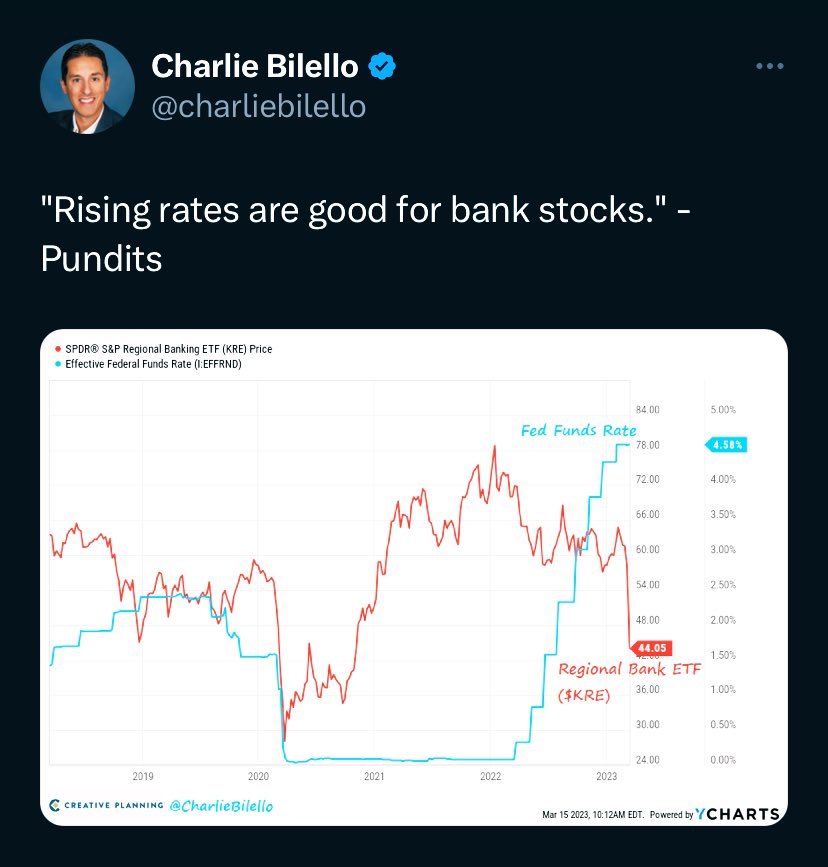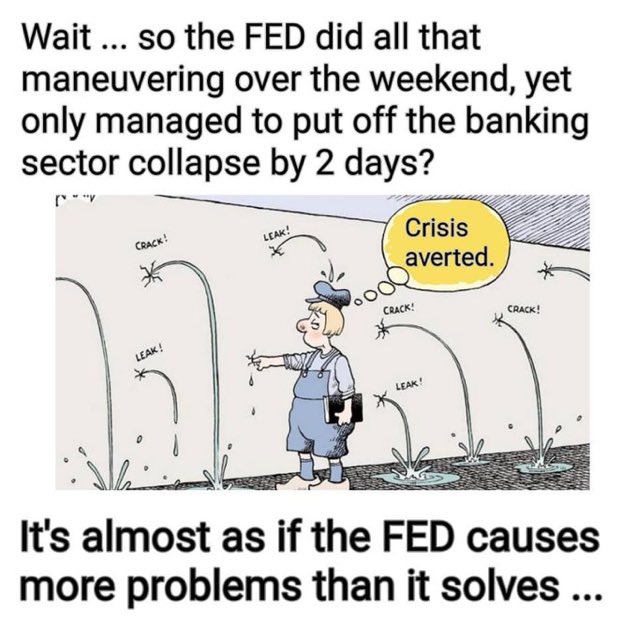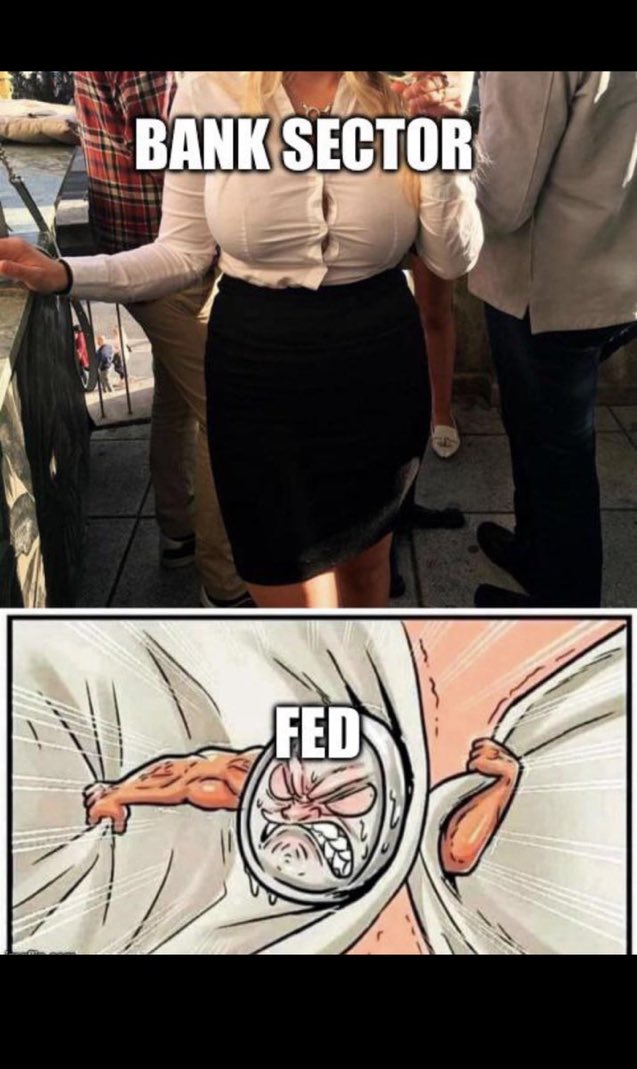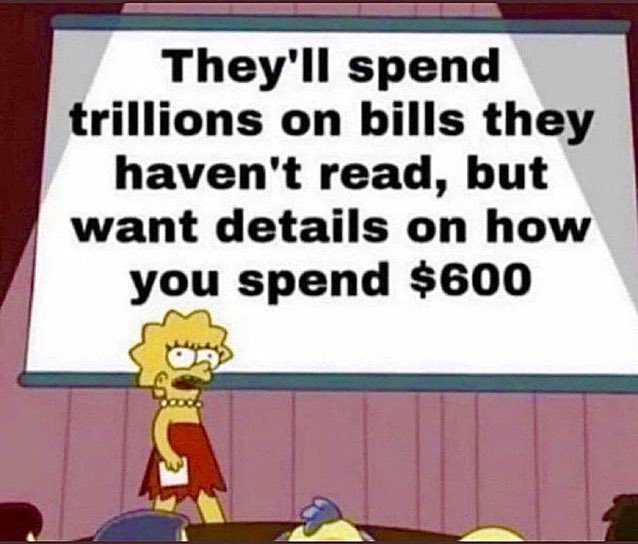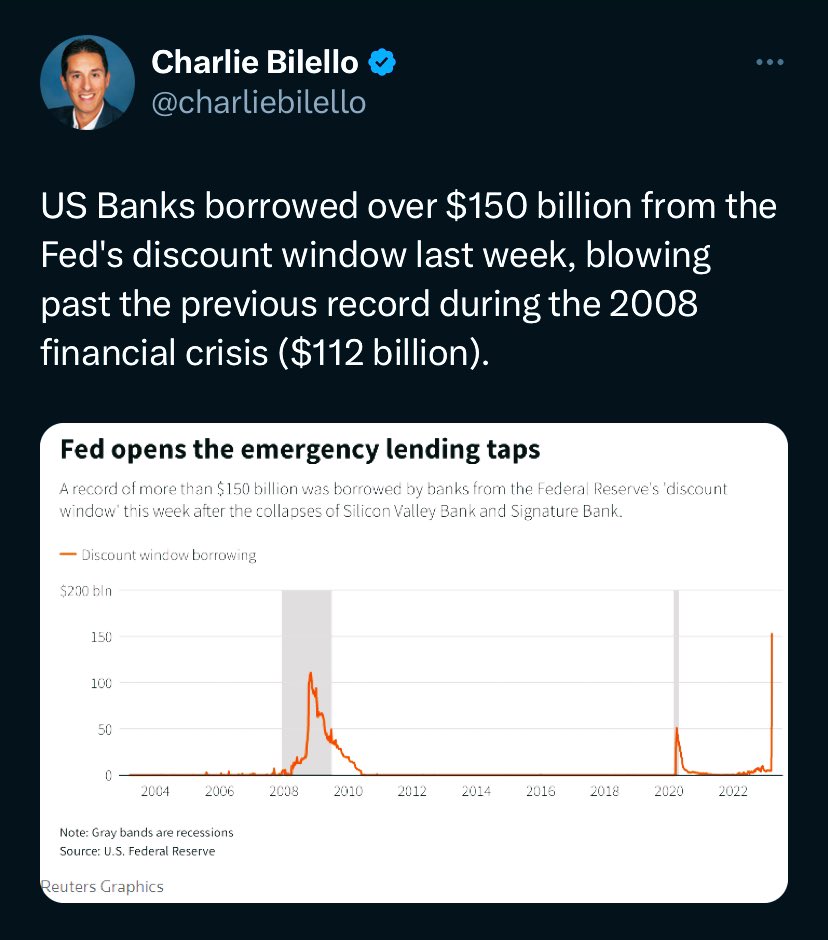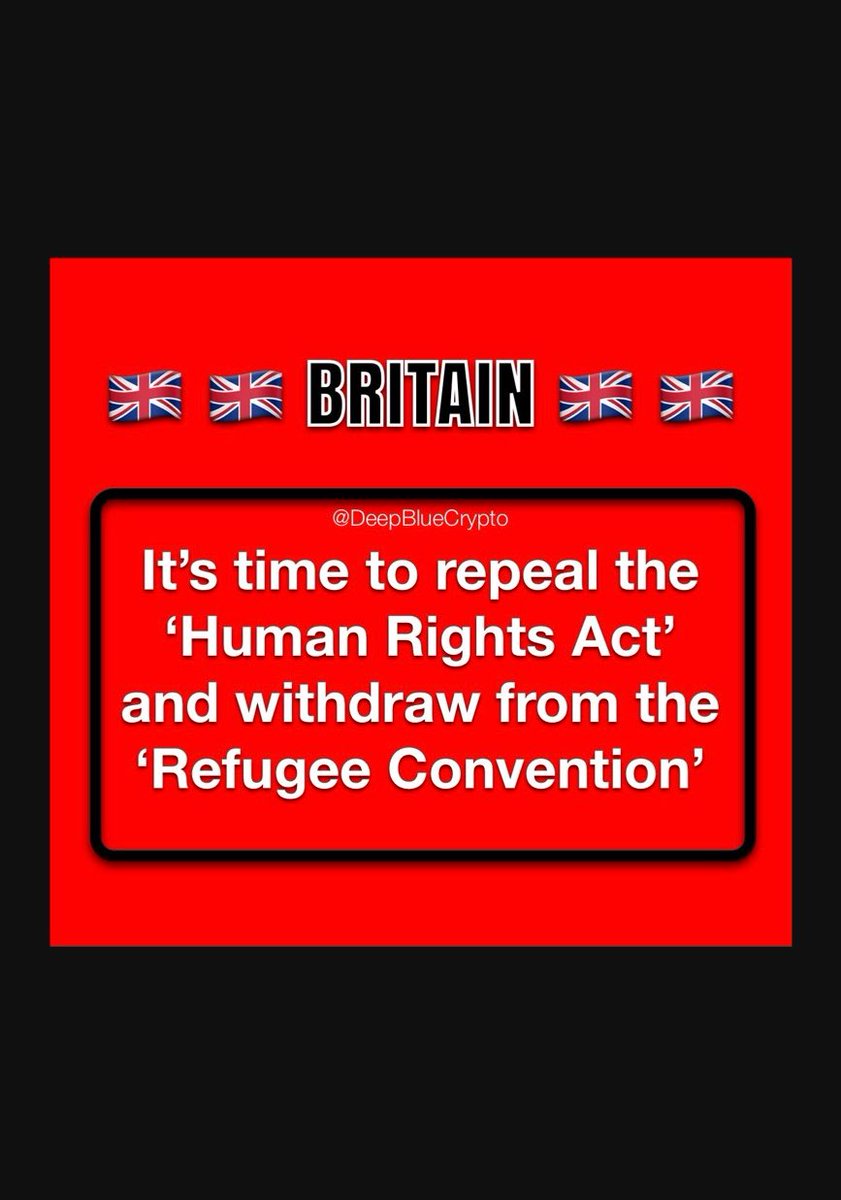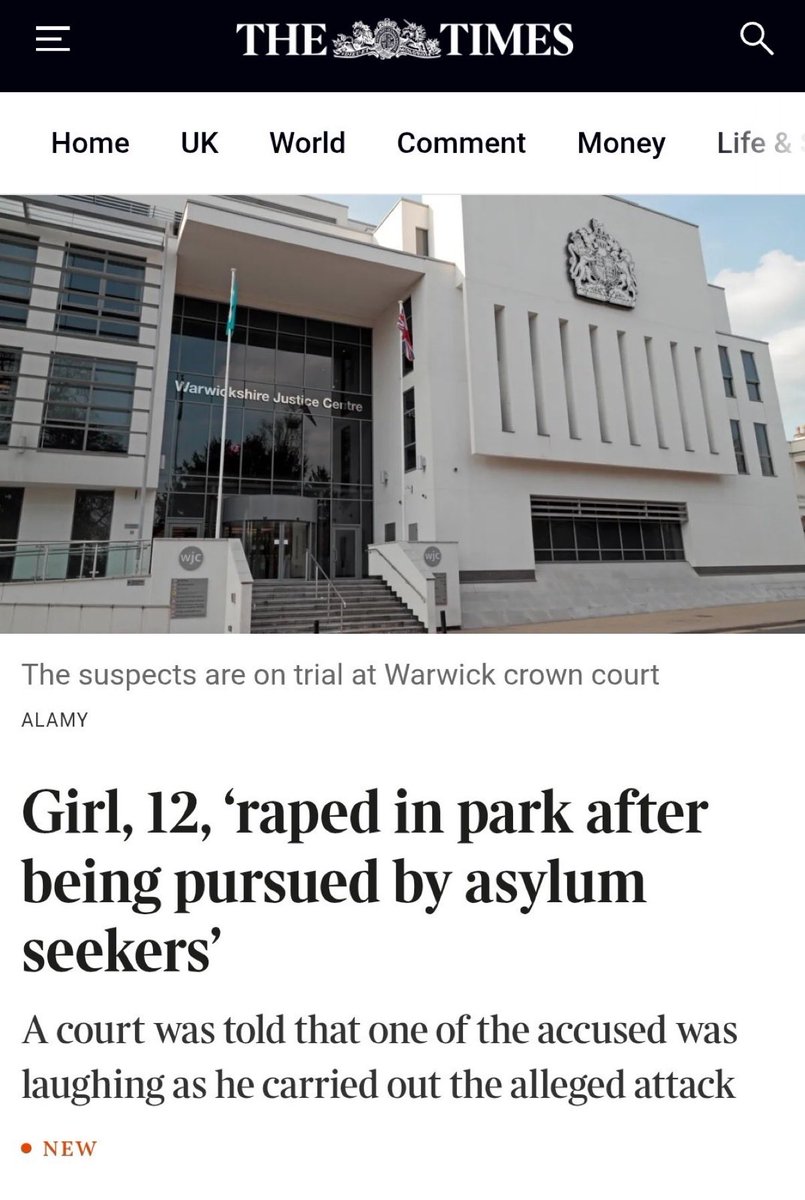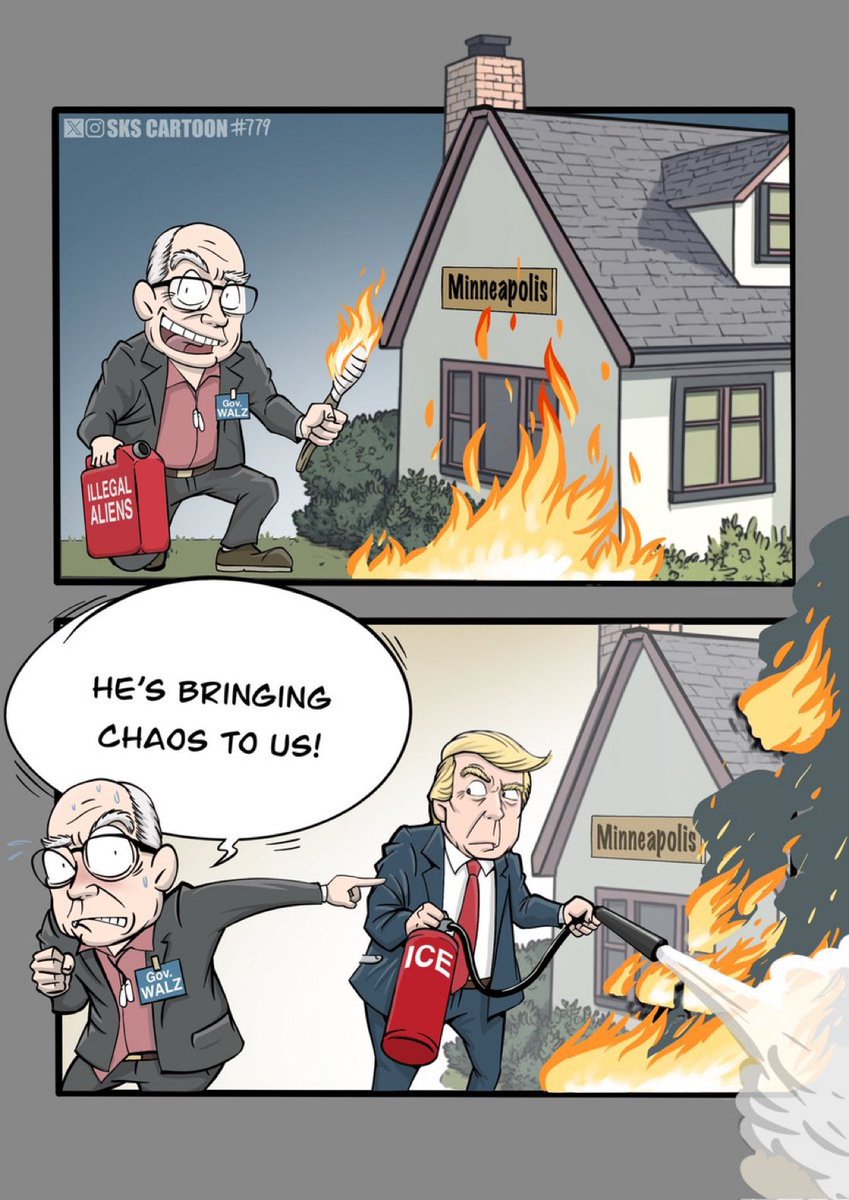#FederalReserve is the largest central bank in the world.
Citizen vs. State: If you look at the original founding principle objectives of the federal reserve, you can’t find a single one which benefits the citizen. The fifth objective is clearly a great lie we’ve all been… twitter.com/i/web/status/1…
Citizen vs. State: If you look at the original founding principle objectives of the federal reserve, you can’t find a single one which benefits the citizen. The fifth objective is clearly a great lie we’ve all been… twitter.com/i/web/status/1…
Here’s a prev 🧵 on #FederalReserve
https://twitter.com/DeepBlueCrypto/status/1633174565470760961
Just an FYI. I tweet from my readings and curated knowledge of the masses. I’m no banking contagion expert 😂 

CREATION OF FEDERAL RESERVE:
THE SEEDS HAVE BEEN SOWED IN SECRECY ON JEKYLL ISLAND IN 1910
THE SEEDS HAVE BEEN SOWED IN SECRECY ON JEKYLL ISLAND IN 1910
https://twitter.com/DeepBlueCrypto/status/1635756092750692364
What FED thinks vs. What FED does👇
https://twitter.com/DeepBlueCrypto/status/1273022790334124034
After they bailed #SiliconValleyBank 
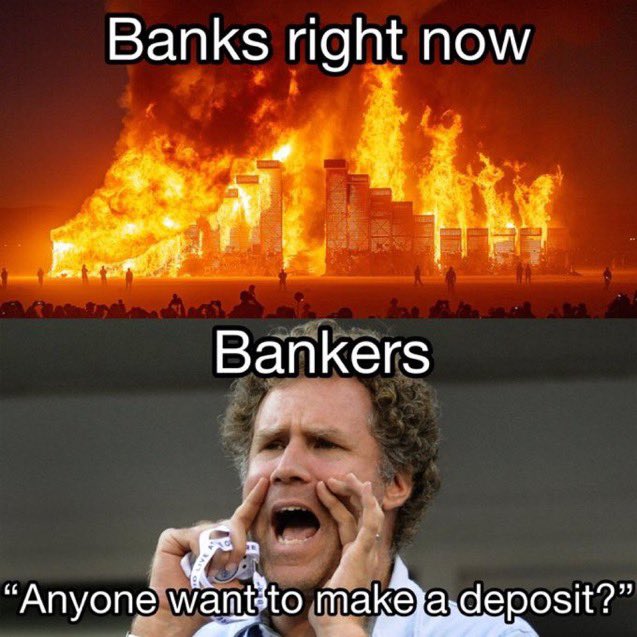
FED playbook:
QE-QT-QE-QT… forever until the currency is worthless. Then they bring in a new currency, back to square one.
QE-QT-QE-QT… forever until the currency is worthless. Then they bring in a new currency, back to square one.

Western sanctions didn’t dent Russia. In fact it’s helping them from staying out of the #BankingCrisis
Russia is moving from strength to strength
Russia is moving from strength to strength

Why would a bank donate $74,000,000 towards #BlackLivesMatter movement which was riddled with greed & fraud
#GoWokeGoBroke
#GoWokeGoBroke
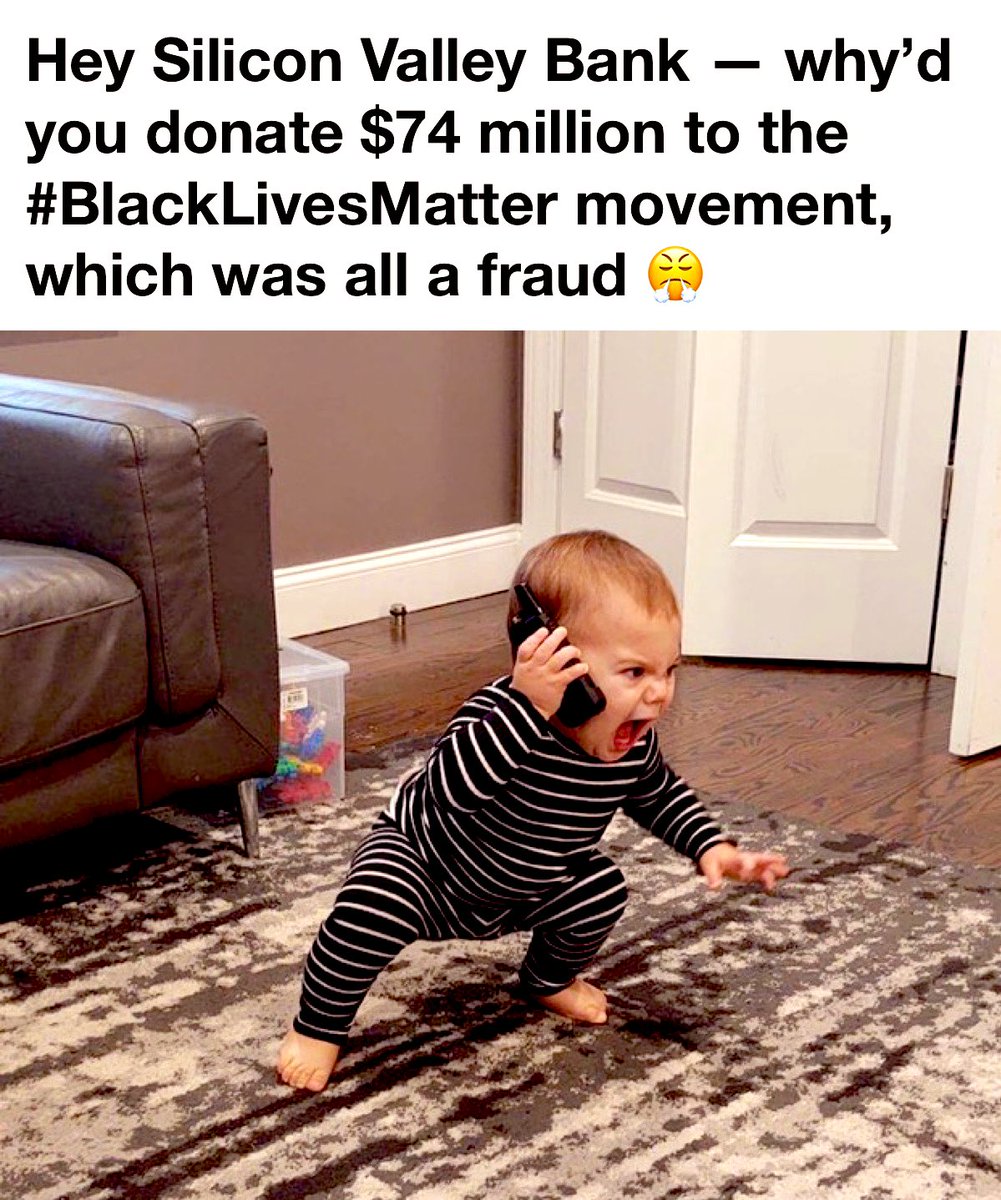
#FederalReserve reacts late in raising rates as well as cutting rates. FED causes these boom and bust cycles in the process leaving the entire banking system and credit lines in jeopardy.
The #CentralBanking system has effectively mandated that banks can do no wrong. Even if they’re wrong, they’ll be backstopped to infinity ♾️
What does that mean… these banks will take insane risks with our money and #PrivatizeGains #SocializeLosses just like your governments… twitter.com/i/web/status/1…
What does that mean… these banks will take insane risks with our money and #PrivatizeGains #SocializeLosses just like your governments… twitter.com/i/web/status/1…

If we are all waiting #FederalReserve to pump liquidity through QE then we aren’t good investors after all 

JPMorgan in talks to acquire First Republic Bank. Finally there’ll just be 4 banks and all worlds banking there.
#TooBigToFail banks & government will rule the earth once again 🤷♂️
#TooBigToFail banks & government will rule the earth once again 🤷♂️
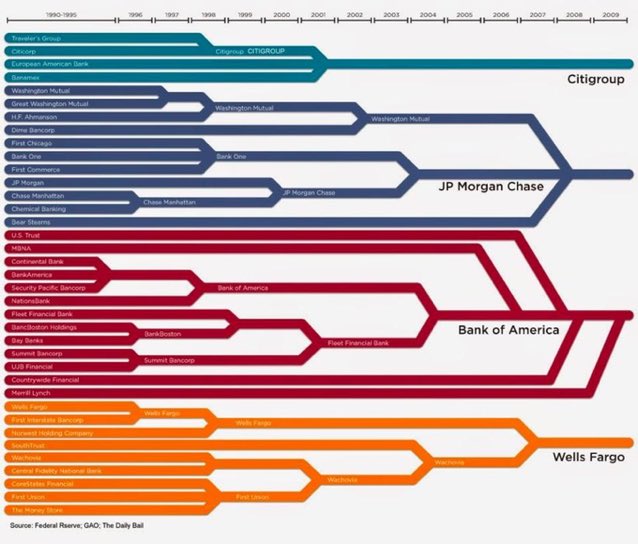
This is the live look at…
⭕️ Risk management teams at FTX, SilverGate Bank, Credit Suisse, Silicon Valley Bank, First Republic Bank.
⭕️ #FederalReserve playing with interest rates and liquidity.
⭕️ Risk management teams at FTX, SilverGate Bank, Credit Suisse, Silicon Valley Bank, First Republic Bank.
⭕️ #FederalReserve playing with interest rates and liquidity.

#FederalReserve has undone 6 months worth of QT in 6 days and y’all still think they’re in control 🤷♂️ 
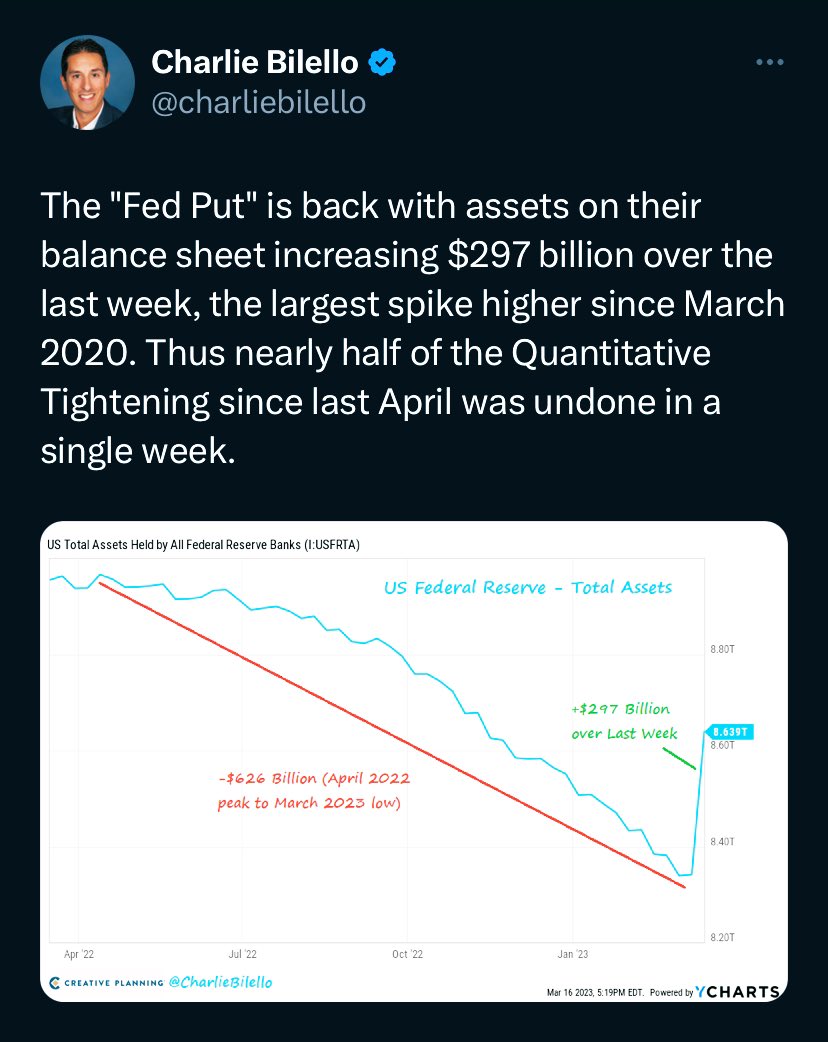
Those banks are evil, #FederalReserve created a precedent by bailing out these risky banks even if they take incredible amounts of risks with our money and lose it all. 

Janet Yellen saying our banking system is sound is like the media saying they’re unbiased, the government is there to help and the FBI investigating itself and finding no faults
WE ALL TRUST YOU JANET 😂
WE ALL TRUST YOU JANET 😂
Your #FederalReserve liquidity 

What could we have done with $220 billion in bank bailouts. Of course its $300+ billion now, but you get the point across. Nothing good comes from bailouts. FED sends a wrong message to risk takers in banks. 

#FederalReserve & the banking system 

#FederalReserve hasn’t been audited for 110 years ever since it’s creation, but they want to audit $600 of your transactions. Transparency is one way. 
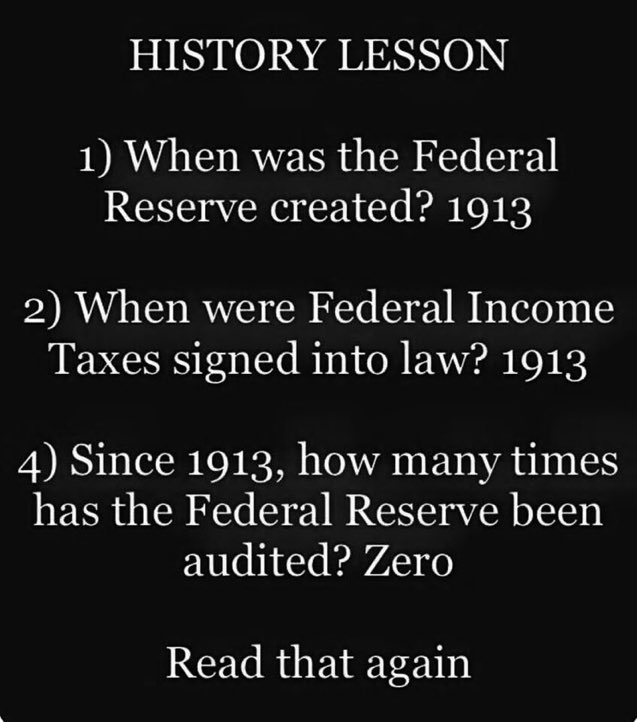
A fair warning to the #FederalReserve 
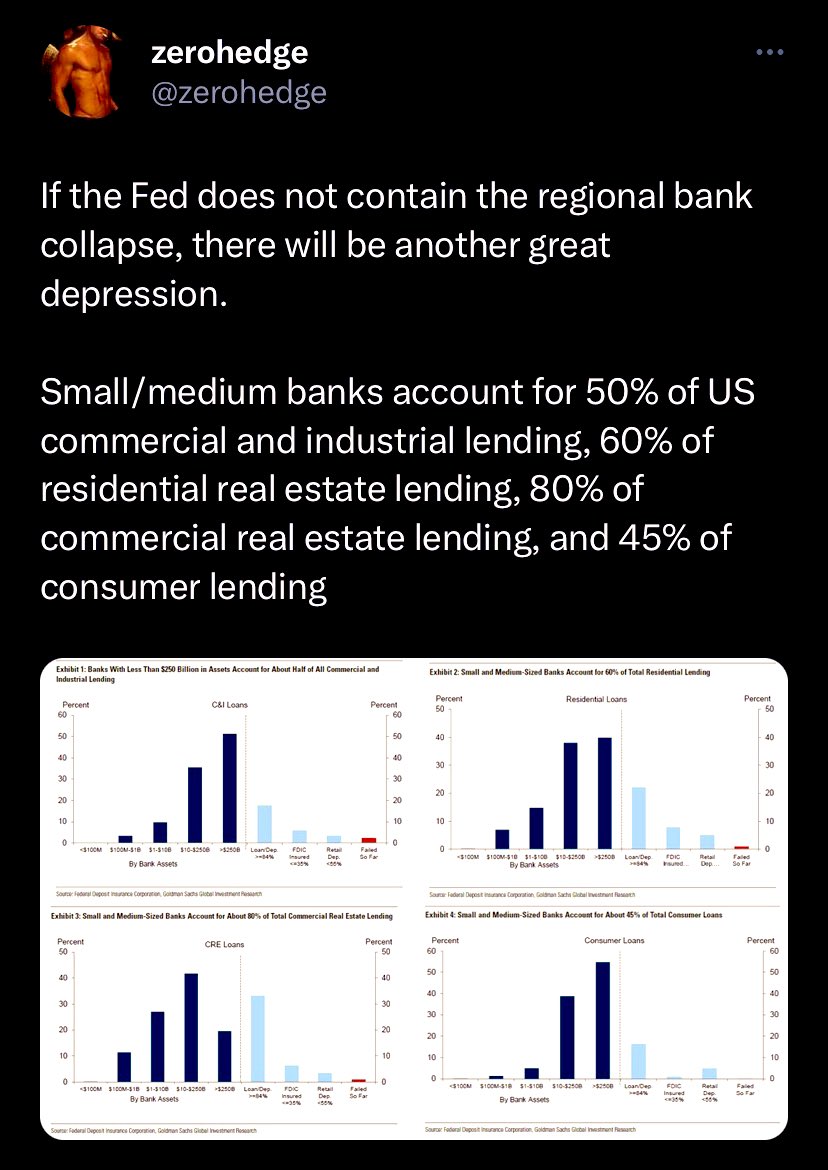
We know that gold paper trades 100x the original gold content. Most paper products & derivatives are worthless. 

Bigger the banks, bigger their power
Bigger the banks, smaller the citizen
#Government assumes more power with nationalized banks & implement #CBDCs with complete financial surveillance and slavery
Bigger the banks, smaller the citizen
#Government assumes more power with nationalized banks & implement #CBDCs with complete financial surveillance and slavery

When the US #FederalReserve and Treasury Secretary #JanetYellen calling US Banking System is robust…
Its actually the exact opposite. The banks are broke, the central bank is teetering on the brink of USD currency collapse… #Bitcoin is the exit
Its actually the exact opposite. The banks are broke, the central bank is teetering on the brink of USD currency collapse… #Bitcoin is the exit

When #CentralBanks like Federal Reserve keeps printing money to bailout bankrupt banks and badly managed corporations, hyperinflation hits which erodes your currencies purchasing power immensely.
If #Hyperinflation happens, your rates double or purchasing power halves in hours… twitter.com/i/web/status/1…
If #Hyperinflation happens, your rates double or purchasing power halves in hours… twitter.com/i/web/status/1…
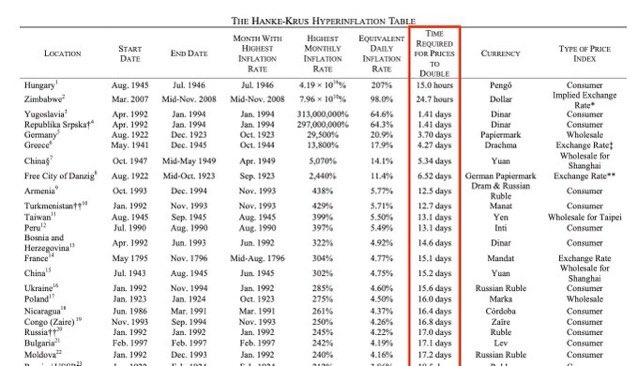
When they release an emergency statement on major central banks liquidity crisis… they’re broke
#ECB is broke
#BOC is broke
#FED is broke
When there’s no demand for their worthless treasuries, where will they go for money… devaluation happens fast
#ECB is broke
#BOC is broke
#FED is broke
When there’s no demand for their worthless treasuries, where will they go for money… devaluation happens fast
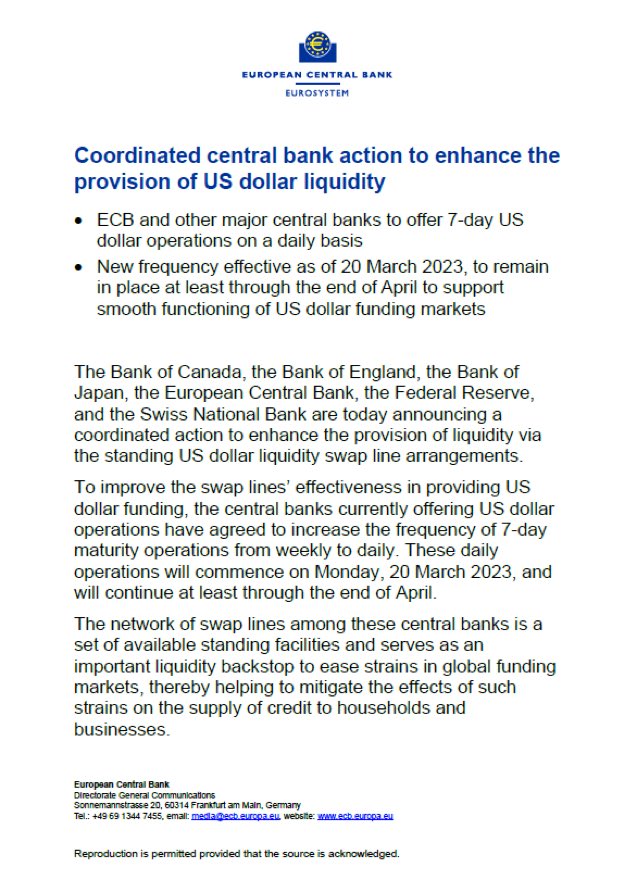
If the Emergency Swap Lines between FED, ECB, BOJ, BOC, BOE and other central banks weren’t open, there would be unraveling of a $2000+ Trillion derivates, worth much less than what they are currently.
#EmergencySwapLines
#EmergencyFedSwapLines
#EmergencySwapLines
#EmergencyFedSwapLines
https://twitter.com/gaborgurbacs/status/1637522483476680710
When people lose confidence in the banking system, they’re asking an exit to store their wealth. #Bitcoin is a pristine asset outside the system not based on debt but pure energy.
#Bitcoin is the exit when confidence is lost in the current banking system.
#Bitcoin is the exit when confidence is lost in the current banking system.
https://twitter.com/ercwl/status/1637573829642862595
Swiss National Bank (SNB) reported a first loss ever of $133 billion. The central banks are broke folks, exit. 

• • •
Missing some Tweet in this thread? You can try to
force a refresh

